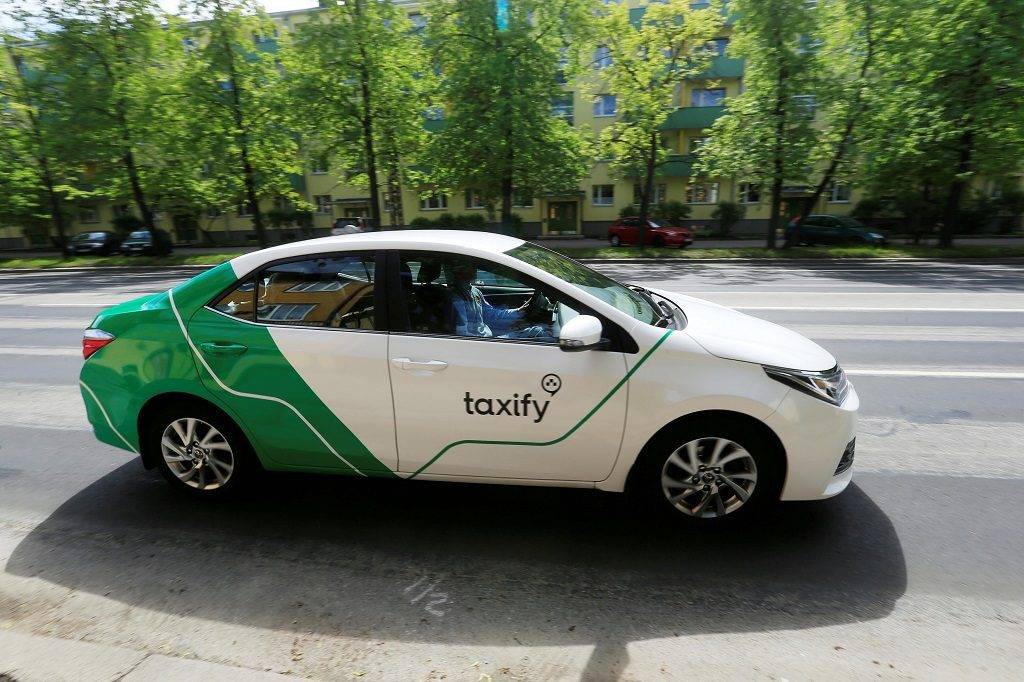The Gig Economy Is The Present And The Future Of Employment In Africa – But There’s A Big “BUT”

Unemployment has remained a problem in several parts of the globe. Africa has had its fair share of the problem but the gig economy has created a bustling informal sector which comes with nearly as many problems as it does promise.
It was the by-product of a combination of a number of both connected and disparate factors including the advent of the internet and rise in internet penetration, the proliferation of digital platforms, the continent’s burgeoning and fast-rising youth population, and the struggles with unemployment. Put all that together and the offspring is something called the gig economy, or the economy as it has come to be known in some circles.
Africa plays host to a complex and diverse youth who lead varied lives on a continent that is going through what seems like an unprecedented spike in population growth numbers. One of the less pleasing fallouts from the situation is the fact that fewer people are benefitting from formal jobs and wage employment, despite the potential economic opportunities that are in the offing. And that’s because there aren’t very many of those formal-sector-kind-of-jobs on the continent anyway.

It is because of this that those who are being neglected or utterly left out by the paucity of opportunities in Africa’s formal sector, and who have probably chosen to stay honest, are exploring livelihoods that encompass many different activities organised under something known as the informal sector – enter, the gig economy.
What Is The Gig Economy?
WhatIs.com defines the gig economy as “an environment in which temporary positions are common and organisations contract with independent workers for short-term engagements.”
In today’s world, the gig economy has more or less become an all-comers affair which has a place for just about anyone who has as much as access to the internet and a functional laptop or smartphone. Throw those in with some sort of skill that needn’t exactly be flawless or top-notch and that’s about all that is needed to function in the gig economy of today.

The turn of the millennium was accompanied by the internet boom, and with that came improved technology that has quietly been changing the way we work. Over half the world’s population is now connected to the internet and computers have grown smaller in size, encouraging digital mobility. This rise in internet penetration and the promotion of digital mobility have given rise to the gig (or sharing) economy.
The gig economy has been dubbed “the future of work in Africa.” As culled from a paper put together by the Centre for Global Development (CGD) last year; “It’s time we recognized the truth about the future of work in Africa: it isn’t in the growth of full-time formal sector jobs. The future of work will be people working multiple gigs with “somewhat formal” entities. This is already true, and it will be for the foreseeable future.”
And it’s all thanks to technology; a tool that has, no doubt, created most of the opportunity in the informal sector economy. These days, it’s common to find new industries building a market base in urban/peri-urban areas, and creating jobs such as shared-ride drivers, freelancing, e-commerce logistics personnel, homestay hosts and several others.
More so, markets in the informal economy have expanded to accommodate small enterprises and customers are now served up with a greater range of products and services to choose from.
With technology comes the offer of scale and the potential to accelerate regional and international informal trade. Innovative solutions offer potential new opportunities, even in rural areas. All these weigh in significantly in what looks like the coming to the fore of the gig economy in Africa.
Just How Big Is It?
What comes to mind when you think of the gig economy? Probably individuals driving for Uber or having food dropped off for Deliveroo? Well, you’re not entirely wrong. But you’d be if you thought that’s about it. And that’s because today’s gig economy is actually an aggregation of many similar but unique platforms which would have been a lot like Uber or Deliveroo if they didn’t enable the remote provision of digital services.

One estimate has it that the ‘online workforce’ is 48 million-strong, boasting a market that is worth up to USD 5 Bn. But besides the locally-provided gig economy services such as the earlier-mentioned Uber and Deliveroo, there’s a remote gig segment that may even be ‘cooler.’
This kind of gig work is facilitated by the internet and other communication tools just as in the case of gigs done locally. But unlike those, remote gig work is so-called mostly because it can be handled by individuals anywhere in the world. Such digital labour typically consists of jobs like software development, website design, ads creation, data entry, interview transcription, article writing, voice over artistry, graphics design, and lots more.
For the better parts of the last few decades, a new trend has been hotting up and threatening to transform the employment sector via a shift from traditional formal employment towards jobs that are a bit more flexible and informal – something triggered by the bleak realities of society and necessity than any well-thought-out, organised plot to shake things up.
Back in the day, being employed meant tying down a nine-to-five job and grinding well into your sixties. Anything else was considered ‘less’ and perhaps ‘unbefitting.’ But over the years, that train of thought has gradually derailed owing to the fact that, in the developing regions of the world like Africa, the formal sector isn’t churning out enough jobs to match the rising workforce population.
Where the disparity between the number of formal jobs available and the number of willing hands available haven’t caused a lot of those hands to be smeared in crime and other dishonest activities, we probably have the gig economy to thank. An increasing number of people are looking away from formal employment opportunities and taking up part-time jobs and freelancing as a means of livelihood.
Between a contracted web designer, a freelance writer who occasionally works on articles for a publication, and a part-time professor, there’s one connection – they are all players in the growing gig economy; where temporary and flexible jobs are the norm as opposed to formal, full-time jobs. The gig economy as we know it is the turf of employers who are more suited to handing out tasks to freelancers and independent contractors in lieu of hiring people full-time.
And It Gets Even Bigger
The gig economy has been on something of a quiet climb over the years with various organisations across the globe cranking up the need for and use of contingent workers.
As can be surmised from the EY Global Contingent Workforce Study, up to 50 percent of the 214 organizations surveyed have witnessed an increase in the number of contingent workers in the last five years. This offers evidence as to how temporary and flexible jobs are becoming a new normal in the corporate scene supporting the growth of the gig economy.

Even as it seems the gig economy is just starting to gain momentum all over the world, it is important to remember that the concept has been around for a while. Just like now, people who hit their prime even before the famous industrial revolution would work multiple jobs, at times part-time, in order to earn extra income and do a better job of providing for their families.
The big difference between then and now is that, while it used to be more like an option back in the days, it seems like the ‘only’ option in this part of the world these days. And this is helped in no small part by the fact that the technological advancements recorded in recent times have seen the gig economy flourish and morph into something far more rewarding and diverse.
As technological developments and the digital media have served to bridge the gap between parties that used to be separated by geographical distance, it has created a world of limitless possibilities.
In today’s world, it’s common to find corporate firms outsourcing different company projects to people in different parts of the world and still be able to run point on those tasks and collaborate to bring about positive results. This is especially common when it makes financial sense to ship such projects to places where skilled labour comes on the cheap – something that is abused sometimes.
What Are The Benefits
These days, you’re most likely to get a good chunk of new internet users coming from parts of the developing world (low and middle-income countries), with the majority of those seeking ways to benefit monetarily from the opportunities provided by the internet.

In many ways, the rise of the gig economy platforms has been quite instrumental in enabling skilled workers in developing countries to connect with and earn income from clients in richer, developed countries. By so doing, the gig economy has put together what looks like an ‘all-conquering’ army of labour which could potentially lay the foundation for a labour market whose impact could be of the order of a seismic tremor, at least, in a figurative sense.
One of the more important benefits of the gig economy is that it allows individuals to do multiple jobs in unrelated fields, providing for multiple streams of income. Hence, you could find someone putting in work as a content developer for a software firm in say, Cape Town, while juggling other gigs like hosting guests on Airbnb, managing the social media accounts of a startup, and giving rides to passengers as an Uber driver during the weekends.
It sure does sound like a lot but trust me, you don’t need that many hands. With the internet-driven gig economy of today’s world, just about anything is possible.
Why Does It Matter?
Being part and parcel of a digital era, the technology-driven gig workspace has changed the way people view the workplace. With the bulk of those finding their way into the workforce being millennials (Generation-Y) and part of the so-called Generation-Z, who all grew up with the internet, the traditional office job has become far less appealing than it used to be not that long ago.
As things stand, the new breed of employees is on the lookout for employment offers that allow them to work on their own terms. A good example can be cited in tech-enabled, on-demand ride-hailing companies like Uber and Bolt (formerly Taxify) where individuals are able to use their car as a cab part-time – being the ones in charge of their work hours and earnings to some extent.

With this in mind, it could be said that the gig economy of today encompasses three components; the consumers who are those in need of a specific service, the independent workers who are doing the ‘gig’ and being paid for the service, and the companies which connect the consumer to the independent workers, including the app-based technology platforms like Uber, Upwork, Fiverr, Lynk, and many others.
As a matter of fact, the gig economy is not exactly new, people have been working gigs long before now. But when the gig economy is being talked about these days, it generally connotes relatively novel, tech-enabled kinds of work, organised under a specific, tech-enabled third-party platform.
Even though the gig economy is still in its nascent phases in Africa, it is becoming increasingly popular amongst African investors and entrepreneurs who are known to now prefer on-demand services to more traditional nine-to-five jobs schedules.
This can be attributed to the fact that the vast majority of the continent’s workforce are earning their bucks through self-employment since formal employment now seems like the prerogative of only a few.
According to available data, approximately 74 percent of the labour force in sub-Saharan Africa is self-employed. In Kenya, for instance, only a paltry 17 percent of the labour force is employed in the formal sector.
The CGD research from 2018 also found that people living in major African cities are actually better suited to those informal, flexible jobs, stating that a good number of those who already have formal jobs even long for the gig economy in some way.
More tellingly, CGD identifies another mass category of African e-workers called “digital translators.” In this context, it implies companies like Kenya’s Safaricom employing some 5,400 people formally, but having another 130,000 mobile-money outlets, typically managed by one or two people.
The document also points to Africa-focused e-commerce company, Jumia, which claims to employ over 3,000 people across Africa, while boasting another 100,000 commission-based affiliates who help customers make orders.
Citing the 2016 Jobs for Youth in Africa Report by the African Development Bank (AfDB), it makes for a worrying discovery nearly 420 million youths in Africa are unemployed. In fact, the situation may yet worsen as indications from the International Labour Organization (ILO) have it that the number of youth facing unemployment in the continent is expected to reach 830 million by 2050 – not that far from a tale of woe and doom.
The alarming unemployment rate and bleak projections for the future have been helped along by the surge in the number of young Africans flooding the labour force annually and the lack of a robust formal sector that can cater to the overwhelming job demands. Thus, African governments have been left reeling as they attempt to battle the massive odds stacked against them.
But even the best efforts of the government have proven inadequate as not much has been achieved with regards to curbing the worrying unemployment numbers. This, in addition to the technological advancement that the continent has seen in recent times, has brought about the growth of the gig economy as more startups and individuals have resorted to making the most of the opportunities in the informal, digital workspace.
Surely, There’s Got To Be A Catch
The gig economy has undoubtedly helped hundreds of thousands of Africans who would have been otherwise neglected by the insufficient formal employment openings find decent means of livelihoods. But all that may have come at a price that some might describe as steep.

For those who are not big fans of the gig economy, the distaste appears to be hinged on a number of factors including the idea that gig work does not come with any of substantial/stable income, social security, workers’ welfare, insurance bonuses, pension, and other benefits offered under formal employment.
Ideally, a single individual can take up several kinds of gig work at the same time and such a person should be privy to multiple income sources. And most of the time, that holds true – the more gigs one can get, the more money the person gets to make. But less glowingly, that’s about as good as it gets for the average gig worker.
Beyond that, it’s as though everything else pretty much goes downhill from there. The gig worker has no health insurance or company-organised pension scheme. Basically, he/she is on his/her own. The likelihood that he has a financial safety net to fall back on is very low.
Consider Uber, for instance. The drivers on the platform are not employees of the company. They are independent contractors at best, and so are not protected by employment laws. This implies that apart from the money they get from chauffeuring people around – of which Uber gets to cream off a 25 percent commission – the ride-hailing company doesn’t take care of anything else; not health insurance, not pension, not car insurance. Nothing.
Say Uber decides to cut down on the price of its fares so as to not be blown away by the competing companies breathing down its neck, it would still get its agreed commission and if the drivers are to make good money, they will have to up their number of trips per day to make up for the price cuts.
Something similar played out sometime in 2017 when Uber got drawn into a price war with Taxify (now called Bolt) in Lagos and some Uber drivers went on strike to protest the price cuts.
In some circles, the gig economy is described as one of the ‘bastard children’ of an uncaring father; capitalism, and inherently ‘soulless,’ just like its ‘dad.’
It is always difficult to please everyone on all sides of a conversation but there is always a measure that can bring the greater good to the greater number of people – that’s how the good policies are identified.
The gig model does leave casualties in its wake – at times, leaving behind even more casualties than beneficiaries. Some would say it is designed for the benefit of only a few persons, with the majority of the parties involved getting shortchanged.
The gig economy is built on platforms, and these platforms are run by their owners. The owners rope in benefits from the scale of their platforms, sometimes at the expense of the people using them, without any care for who gets burned or whose ox is gored.
So, again, putting ridesharing platforms like Uber and Taxify on the spotlight, during a price war like the one of two years ago, the drivers earn less per ride even though they still incur pretty much the same expense on fuel and car maintenance. And what about the customers? They might have to put up with a reduced quality of service from grumpy, aggrieved drivers, or no service at all (as in the case of a protest or full-blown strike).
Where This Leaves Us
At the moment, labour laws on the continent are barely strong enough to even protect the average formal sector employee, let alone workers in the informal sector. Full employees are hardly protected by regulations, pension schemes (and that’s if the company is offering any at all), and in cases of emergency, employees are basically sitting ducks; vulnerable and unprotected.
You’d even have to really do some digging to find companies in the formal sector that offer such benefits as shares or stock options and other benefits to their full-time employees. Not to mention contract workers.

This is why there is a feeling amongst some industry torchbearers that, even as the gig economy is undoubtedly the employment model of the future, it sort of aggravates an already worrying problem. If full-time employees of today cannot afford to trust the current labour laws to protect them, how bleak can it get for the employees (or contractors) of the future? Really hard to be optimistic on this one.
It is an area that is in need of deliberate action. African governments have yet to really stamp their authority when it comes to labour laws concerning workers in the formal sector, and as employment opportunities in that sector continues to dwindle and the informal/gig sector continues to bring in most of the action, the future of work in Africa may be in jeopardy if measures are not put in place to protect the players in this new economy, or “the” economy as it has come to be known in some places.
It is a move that will require thinking as far as 20 to 50 years into the future – something that isn’t exactly one of our strongest suits in this part of the world – but this could be one of those rare moments when we actually get the chance to get something right before things go south.
The current labour laws are obsolete and amendments are required to cater to the present realities, as well as make contingency plans for the future. This could be viewed as a chance to right the wrongs of the past or have a fresh start.
Whatever be the case, the new employment model is already catching on but it will only make matters worse in the long run if nothing is done to create better labour laws and a more functional system to enforce them.
On their own part, gig-based companies can offer better terms and embrace their responsibilities to the workers. It is not possible to give gig workers all the benefits that full-time employees usually enjoy but it is possible to offer perks such as training and better income that would motivate the workers and encourage more to take up the gigs.
A synergy of these efforts between the authorities and those who call the shots in gig platforms could see the gig economy become the remedy to the unemployment crisis on the continent in the long-run.
Featured Image Courtesy: theonlinesacco.com